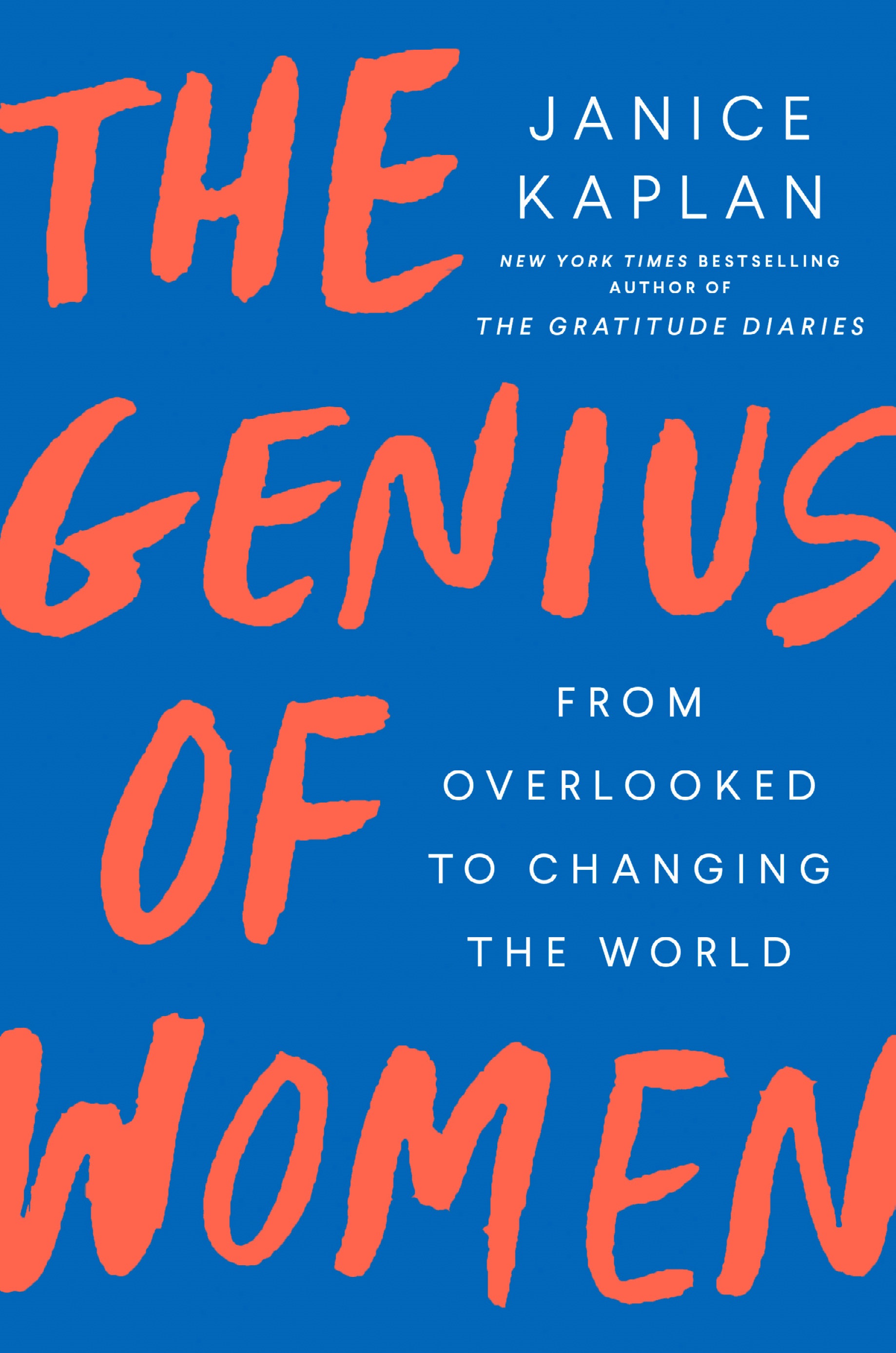If you’re a genius woman and you win a Nobel Prize, sell your paintings to the Louvre, or discover the cure for the common cold, you can pretty much bet that someone, somewhere will tweet about the size of your butt and the dimensions of your breasts. Among the genius women I interviewed, there seemed to be two approaches.
1. Pay no attention . . . you shouldn’t be judged on how you look.
2. Pay attention . . . you’re always judged on how you look.
As in so many areas of their lives, genius women have to figure out for themselves what works and what doesn’t in the beauty-versus-brains—or perhaps beauty-and-brains—sweepstakes. No matter how talented you are, it’s easy to get caught up in the social standards of how a woman should look—and to start to think of that as perfectly reasonable. Even the strongest and most confident women often start out by playing the smile- and-be-pretty game, and who can blame them? It’s easier to try to win with the preset (men’s) rules than to stand up and say you’re going to be an original. You want to be a genius? Well, okay. But first the patriarchy says you might want to focus on the superficial—and be a beauty queen.
Just how powerful is the pressure to be deemed beautiful? Consider Oprah Winfrey. We now know that she is a charismatic genius whose skills at empathizing, communicating, and touching an audience are almost unparalleled. She is one of the most successful talk-show hosts in history, a sui generis genius with honorary doctorate degrees from Harvard and Duke, and the first black woman billionaire in history. She has inspired millions of women to be themselves and find their own center of power. But at age seventeen, she needed the judgment of others—and she was thrilled to be crowned Miss Black Tennessee.
Many decades later, Winfrey looked back at herself when young and realized how hard she worked to please other people and become the image they wanted. Writing a letter to that younger self, she started it: “Dear beautiful brown-skinned girl.” She knew that her younger self was dating someone named Bubba (really, Bubba!) and trying hard to impress him. Like so many young women, she was seeing herself only through his eyes. “A lesson you will have to learn again and again: to see yourself with your own eyes, to love yourself from your own heart,” she wrote. “Self-esteem comes from being able to define the world in your own terms and refusing to abide by the judgment of others.” By the time she wrote that, she didn’t need any pageant judge handing her a tiara—she would win life on her own terms. Whether she was curvy or thin, glamorous or in sweats, her aura of beauty came from her inner self-esteem and the power she had created for herself. That’s the genius of one incredible woman.
Oprah wasn’t the only smart woman who succumbed early to beauty- queen fever, perhaps (at that point) not seeing any other way to success. Bess Myerson wanted to be a pianist and was a star at New York’s High School of Music and Art—but how was a Jewish girl supposed to get wide attention right after World War II? Pretty was the entrée, so she entered the Miss America pageant. When she won, the announcer plopped the crown on her head and crooned, “Beauty and brains—that’s Miss America of 1945!” Sycophantic or slimy? You choose. Either way, she used her winnings to continue studying music and later played at Carnegie Hall and with the New York Philharmonic. The fame of her beauty-pageant win gave her the leverage to let the “brains” part of her title get an airing too, and she served on presidential commissions under three different presidents and became well-known for championing consumer protection and social causes. Oprah eventually realized that she didn’t need to be a beauty queen to be a winner. Myerson parlayed the attention her appearance brought to do the things she really wanted in the artistic and political realms. That’s another kind of genius.
Need more? Diane Sawyer was one of the most successful news stars on ABC television, anchoring the evening news, primetime news shows, and Good Morning America. She started her career as a sharp-witted press aide for President Nixon and spent years at CBS television, too. But before all that, she was America’s Junior Miss. And whatever you think of Sarah Palin, she was governor of Alaska and ran for vice president of the United States. But first she was Miss Wasilla (Alaska).
The danger of all this is that an extraordinary woman like Oprah can try molding herself into a socially accepted pretty-girl when young, only to challenge the whole concept of beauty standards later. But many women who get caught in the beauty trap never emerge. The writer Oscar Wilde once said that “no woman is a genius. Women are a decorative sex.” If you spend too much time worried about being decorative, it could be that you prove Wilde right. It is hard to be original and creative and bold—all hallmarks of a genius—if you’re busy conforming to a social expectation that all that really matters about you is the superficial.
While beauty pageants have (fortunately) dimmed in both luster and appeal over the years, smart women continue to look for affirmation that they are pretty and accepted and . . . well, normal. Social validation has become more democratic—or maybe just more ubiquitous. Instead of catwalking in a sash and bathing suit, anyone can now post a glamorous Instagram photo and wait for the likes to come in, or create a sexy YouTube video and count how many views it garners. The need for acceptance can seem never ending. And if it’s not the area where you normally play? A woman who is focused on becoming a genius scientist or astronaut or CEO doesn’t get let off the beauty hook—though it seems wildly unfair to be expected to wield mascara and a curling iron before presenting your breakthrough research in fundamental physics.
Smart men don’t have to spend much time worrying about how they look or what they wear, but a woman genius can rarely toss on jeans and a lab coat and call it a day. Her wardrobe will be parsed as carefully as her equations. When I talked with roboticist Cynthia Breazeal at the MIT Media Lab, she told me that her colleagues often urge her to wear a hoodie and rough up her appearance a bit. She’s a tech star—she should look like the guys in Silicon Valley. But that’s not her style. She wants to dress the way she likes, and she doesn’t see what being glamorous has to do with her skills, talents, or academic life. In college, Breazeal thought about becoming a professional tennis player, and she still has the body confidence of an athlete. She gave one widely seen talk wearing a very short skirt and over-the-knee black boots, and she thinks it sends the right message that a techie genius can also be an alluring woman. “Give the rest of the world the benefit of the doubt that my being a professor at MIT will outweigh what I’m wearing,” she told me. “People should be able to look beyond my shoes to hear what I’m saying.”
“Look beyond the shoes” is a great mantra. But not everyone does it, and beauty can be complicated. Psychologists say that attractive people benefit from a halo effect, since we unwittingly assume that someone who is strikingly good-looking has other advantages, too. The halo that comes with a nice body and fine features means that the Hugh Jackmans and Will Smiths of the world get credit for being kind, talented, smart, and trustworthy without doing a thing to prove it. Various studies have found that attractive people earn 12 to 14 percent more than their average-looking colleagues, are treated better in the justice system, and are more likely to be considered competent when they apply for a job. For women, the halo effect also holds to some degree—but then it gets thorny. Unless you’re trying to be an actress or a model, you get points for looking good—but can also lose points for the same reason. How seriously are you being taken as a genius intellectual if colleagues are busy commenting on your big blue eyes and Jimmy Choo shoes rather than your original theorems? Several studies show that the spillover effect for attractive men is that they seem smarter than they might really be. The spillover for attractive women is quite the opposite—they have to overcome the expectation that they are frivolous and superficial, and they are less likely to be seen as leaders and authorities. Theoretical physicist Lisa Randall fits any definition of a genius woman. Her work is important and original and has a Twilight Zone appeal of looking at extra dimensions of space. A chaired professor at Harvard, she has written several popular books, been named to various magazines’ lists of most influential people, and created theoretical models to explain dark matter. The fact that she is an extremely attractive blonde who dresses to show off her good looks gets her both praise and contempt. Producers of science shows are eager to put her on TV—and then people who watch those shows wonder if they can trust a scientist who is so darned attractive. Compare her to astrophysicist Neil deGrasse Tyson, a similarly excellent popularizer who appears on TV often. He lacks Randall’s academic brilliance and original research—but he’s tall and handsome with a commanding voice that somehow gives him an unearned authority. His attractiveness adds to his authority in the same way that hers detracts.

From The Genius of Women: From Overlooked to Changing the World by Janice Kaplan, published February 18 by Dutton, an imprint of the Penguin Publishing Group, a division of Penguin Random House, LLC. Copyright © 2020 by Janice Kaplan
Follow us here and subscribe here for all the latest news on how you can keep Thriving.
Stay up to date or catch-up on all our podcasts with Arianna Huffington here.


